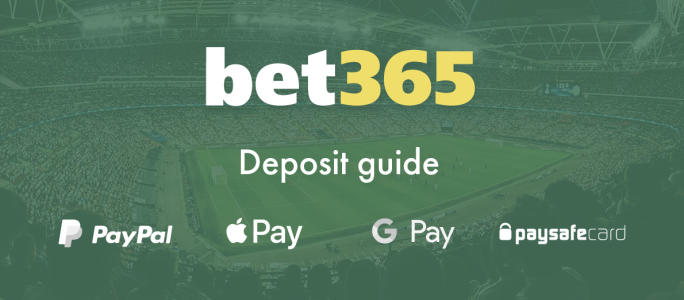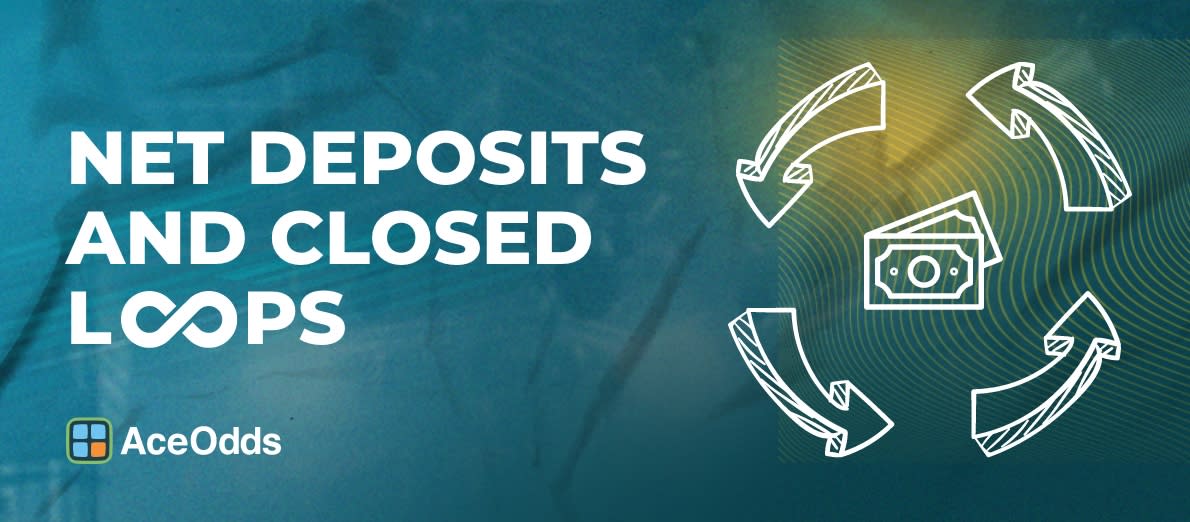
Net Deposits & Closed Loop Restrictions - What do they mean?
When gambling, choose your deposit method carefully because you must withdraw to the same source. Alternative methods are available after the loop is closed. Bank Transfers are offered where the loop cannot be closed.
You may believe that when you sign up for a new betting account, you add money and place a bet, and if you win, you either withdraw the money or bet again. That is what happens, but there’s a lot more going behind the scenes you need to know about because it impacts your ability to bet and withdraw funds.
These restrictions are regulated and apply to all online gambling sites, so you’ll always encounter them.
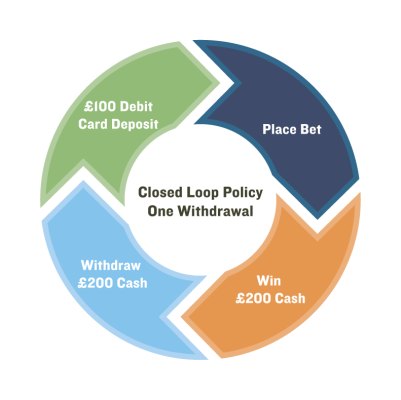
Net Deposit Policy
Net Deposit restrictions are used to deter fraudulent activity by balancing the amounts being withdrawn across all your payment methods.
You can store more than one Debit Card with most online gaming sites, so as long as the loop has been closed and you've used each card to deposit at some point, you can pick which card to use for the withdrawal.
However, with the Net Deposit Policy, each payment source should have the same amount of money deposited and withdrawn. The aim is to create a Net Deposit total as close to zero as possible.
Your online gambling account is being monitored, and calculations are being made using this sum:
- Total Deposits - Total Withdrawals = Net Deposit.
Say you have £300 in your cash balance and want to withdraw it, and you have two Debit Cards registered to your account. Suppose you've deposited a total of £500 into your account using a Visa card and have only deposited £20 using a second card - MasterCard, for example. In that case, you may face restrictions if you try to withdraw to the MasterCard.
By withdrawing the £300 to the Visa card, you're closer to getting your Net Deposit to zero. Although there's still a difference, the gap is less than if you were to withdraw to the MasterCard.
- Visa: £500 - £300 = £200
- MasterCard: £20 - £300 = -£280
Regarding possible fraudulent activities, the Net Deposit Policy prevents you from putting money in from predominantly one account whilst withdrawing the majority of funds to a different account.
You may be declined from using specific withdrawal methods because of the Net Deposit Policy.
The Closed Loop Policy
The closed-loop policy is a regulated procedure to which online gaming and gambling companies must adhere. Its role is to prevent fraudulent activity and money laundering and to protect people whose cards or financial details have been stolen or compromised.
This is how the Closed Loop Policy looks in terms of online gaming. You add money to your account via a Debit Card, place a bet, win and then withdraw funds back to the Debit Card. This is a very simplistic explanation, but it sums it up in its most basic terms: to operate a closed loop, you must complete the deposit and withdrawal process via the same payment method.
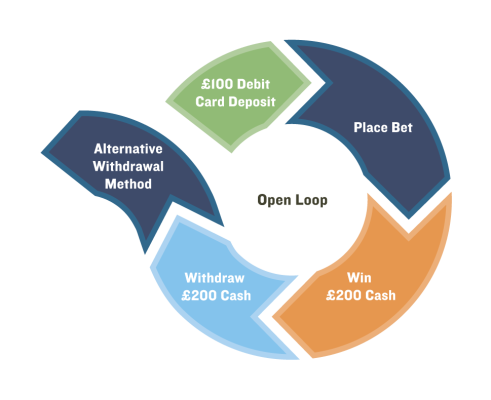
As you can see, if you deposit via one method and then use a different one for withdrawing, the loop remains open. Imagine someone hacks or gets your login details, and you have cash winnings in your account. Without the Closed Loop Policy, thieves could withdraw money to an account they choose or an e-wallet they can access.
It leaves you at risk. Unless you’re incredibly unlucky and have had multiple login details stolen, your money will come back to you by forcing the withdrawal to be made to the method used to deposit.
That’s the personal element, but the Closed Loop Policy also prevents more serious criminal activities like money laundering.
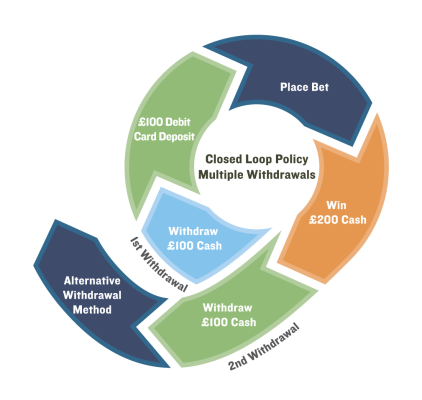
That’s not to say there’s no flexibility with the Closed Loop Policy. If you deposit £100 via a debit card and win £200 in cash, you only need to withdraw the deposited amount of £100 back to the debit card used.
Once the loop has been closed, you can withdraw the remaining amount via another method.
Enforcing a Loop
While writing our deposit and withdrawal articles, we've found that many online gaming companies will insist that there's a loop with each payment method you want to use for withdrawing.
It wasn't something we found with them all, but it came up on more than one occasion, particularly with e-wallets.
Using Betdaq as an example, when we clicked on Skrill and Neteller to get the details of that method, Betdaq notified us that we must first deposit funds via those methods before we could use them for a withdrawal.
This forces a loop of some sort, protecting you as a customer. Without this, if fraudsters have accessed your account, they could withdraw some funds to the deposit source to close the loop and the rest via an e-wallet.
The company will transfer the money if the email address or mobile number on the e-wallet (MuchBetter uses a mobile number, whereas most others use email) matches that registered to your account.
To counteract this, some companies require you to have used the e-wallet to deposit funds and prove it's a legitimate account before being permitted for withdrawal.
When the Loop Cannot be Closed
A grey area of the Closed Loop Policy is when there are differences between the permitted deposit and withdrawal methods. During our research, we found, on more than one occasion, that we could use the Paysafecard account to deposit funds, only to find it unavailable for withdrawals.
Unless you looked ahead or viewed our articles, you wouldn’t have known you were setting yourself up for difficulty. In these cases, you’re not responsible for being unable to close the payment loop.
When this situation arises, you can withdraw money via Bank Transfer. However, there will likely be further security checks and a fee. It may also involve contacting the relevant support desk for help releasing the cash in your account.
As you can see, there’s more to online gaming than just adding money and playing the odds; it pays to educate yourself in these matters.
Closed Loop Policy FAQs
Every online gambling site will have different procedures in place. With some, you’ll be able to update the expiry date of an existing card from your Account section. Others will require you to make this change by contacting customer support.
If a Debit Card is lost or stolen, the first step is to contact your bank/s to cancel the card. With the cards still in date and active, you will not usually be able to remove them manually from your account. Instead, you will need to contact customer support and go through verification and security measures.
There could be many reasons, one of which is the Net Deposit policy. You can check your transaction history and determine what you have deposited and withdrawn. If your Net Deposit is too high, you may have to withdraw funds to that card to get it to zero before removing it. This matter is probably better directed to the appropriate customer support.
No. A Net Loss is where the company will monitor how much you’re depositing against how much you’re winning and set a limit. This is to ensure customers are safe online and gambling within their means. The company will impose restrictions on the account if the Net Loss gets too high.
Also See
About AceOdds
AceOdds provides the most comprehensive and reliable suite of bet calculators. Our expertise also extends to finding the best bonus codes and sign up promotions with the occasional tip-off from our shrewd user base.
Learn More. Advertising Disclosure.
- Brighton v Nottm Forest
- Fulham v Tottenham
- Man Utd v Crystal Palace
- Arsenal v Chelsea
- More Match Odds...





